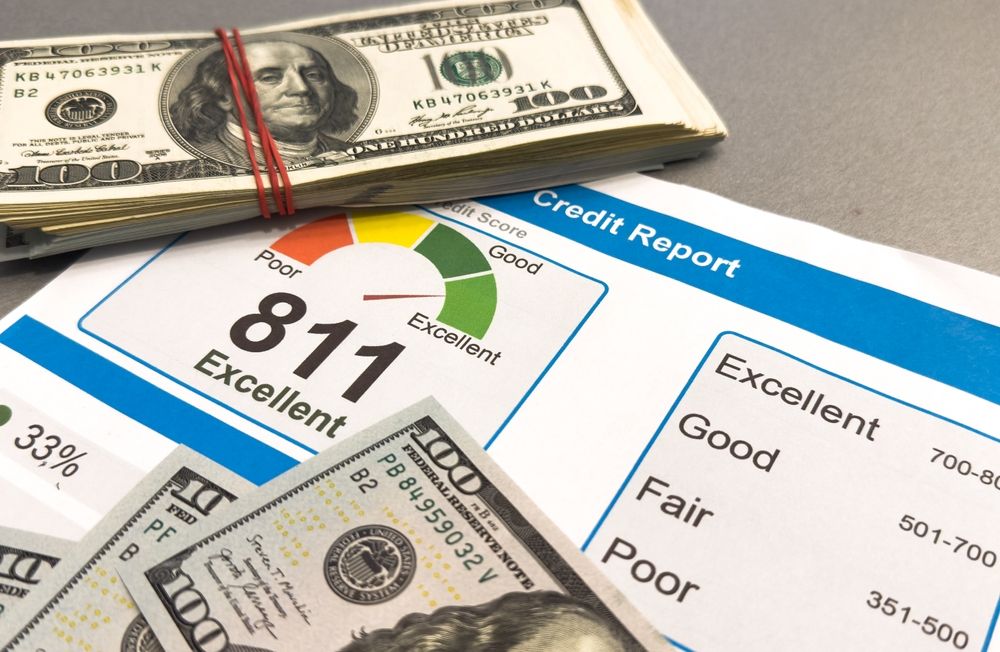Building a healthy credit score is a fundamental aspect of personal finance management that can significantly impact your financial future. Whether you’re planning to purchase a home, finance a car, or secure a personal loan, a strong credit score can save you money in interest payments and provide more favorable borrowing terms. While there are several ways to improve your credit score, it’s important to understand methods that enhance creditworthiness without engaging in risky financial behavior.
Understanding Your Credit Score
Your credit score is a numerical representation of your creditworthiness, typically ranging from 300 to 850. This score is calculated based on the information in your credit report, which includes details about your credit history, current debt levels, and payment history. The key factors influencing your credit score are:
- Payment History: Reflects whether you pay your bills on time.
- Credit Utilization Ratio: The amount of credit you’re using relative to your total credit limit.
- Length of Credit History: How long your credit accounts have been active.
- Credit Mix: Types of credit accounts you have, such as credit cards, mortgages, and installment loans.
- New Credit: Number of recently opened credit accounts and recent inquiries on your report.
Understanding these factors empowers you to take steps that positively impact your score while avoiding unnecessary risks.
1. Timely Payments: A Pillar of Credit Health
Paying bills on time is crucial, as payment history is one of the most significant factors affecting your credit score. Late payments can dramatically lower your score and remain on your credit report for up to seven years. To avoid missing payments:
- Set up automatic payments: Automate your bill payments through your bank or credit card company to ensure they’re always on time.
- Utilize payment reminders: Use calendar alerts or reminder apps to notify you before a bill’s due date.
- Manage billing cycles: If due dates clash with your pay dates, you can request a change in billing cycles from your service providers.
By keeping a clean payment record, you establish reliability and enhance your creditworthiness.
2. Smart Management of Credit Utilization
Your credit utilization ratio accounts for a significant portion of your credit score. This ratio represents the percentage of your available credit that you’re using. Financial experts typically recommend keeping your credit utilization below 30%. Here are strategies to manage it effectively:
- Regularly monitor credit balances: Be conscious of how much credit you’re using and aim to pay it down as needed.
- Increase credit limits: Requesting an increase in your credit limit can help improve your utilization ratio. However, ensure you don’t increase your spending alongside it.
- Employ mid-cycle payments: Pay down balances before your statement is generated to reduce reported balances.
Maintaining a low credit utilization ratio signals to lenders that you’re a responsible borrower, potentially boosting your score.
3. Building Credit with Low-Risk Credit Tools
Certain financial tools can help build and enhance your credit without posing significant risks. These tools include:
- Secured Credit Cards: These cards require a cash deposit that serves as your credit limit. By using the secured card responsibly and paying off the balance monthly, you build a positive credit history.
- Credit Builder Loans: These are small loans aimed at improving your credit score. The money is held in a savings account while you make payments, and upon completion, the funds (minus interest) are yours.
- Authorized User Status: Becoming an authorized user on someone else’s credit card can benefit your score if the primary user maintains good credit habits.
Such tools are designed to aid in building credit without the dangers of overspending or accruing unmanageable debt.
4. Diversifying Your Credit Mix
While it’s not essential to have every type of credit, a varied credit mix can positively impact your score. This doesn’t mean you should open numerous accounts simultaneously, but having a mix of installment loans (like car loans) and revolving credit (such as credit cards) can be beneficial.
- Consider a small installment loan: If you lack installment loans, a small personal loan could be an option to build diversity.
- Maintain active accounts: Keeping old credit card accounts open can help diversify your credit mix and positively impact the length of your credit history.
Diversity in credit types demonstrates to lenders your ability to manage various financial products effectively.
5. Regular Monitoring and Correcting Errors
Errors in credit reports are not uncommon and can unjustly lower your credit score. Regularly reviewing your credit report helps identify such errors. You’re entitled to a free credit report annually from each of the three major credit bureaus: Equifax, Experian, and TransUnion. While reviewing:
- Check for inaccuracies: Verify your personal information, account details, balances, and any late payment records.
- Dispute inaccuracies: If you spot errors, file a dispute with the credit bureau to correct them.
- Monitor changes: Use credit monitoring services to keep an eye on your score and get alerts for new inquiries or accounts.
By ensuring an accurate credit report, you prevent unwarranted negative impacts on your score.
6. Limit New Credit Inquiries
While opening new accounts can improve your credit mix, excessive credit inquiries can lower your score. Each inquiry can cost a few points and potentially suggest financial distress or unreliability to lenders.
- Space out credit applications: Apply for new credit sparingly and only when necessary.
- Pre-qualification processes: Check if you’re pre-qualified for credit offers without affecting your score.
Strategic management of credit inquiries helps maintain your score while you work on other areas of improvement.
7. Educate Yourself on Financial Literacy
Knowledge is power, particularly in personal finance. By understanding credit terms, interest rates, and the implications of financial actions, you make informed decisions that protect and improve your score. Consider:
- Taking financial literacy courses: Many organizations offer free courses and webinars on personal finance and credit management.
- Reading educational materials: Books, blogs, and forums provide insights into effective credit strategies and pitfalls to avoid.
- Consulting financial advisors: Professional advice can provide personalized strategies to improve your credit health without unnecessary risks.
By proactively enhancing your financial knowledge, you equip yourself with the tools necessary to manage your credit effectively.
Credit building doesn’t have to involve risky financial maneuvers. With discipline, informed choices, and a clear understanding of credit mechanisms, you can boost your score while maintaining financial stability. Implementing these strategies not only improves your score but also establishes a foundation for sound financial habits that will benefit you long-term.



